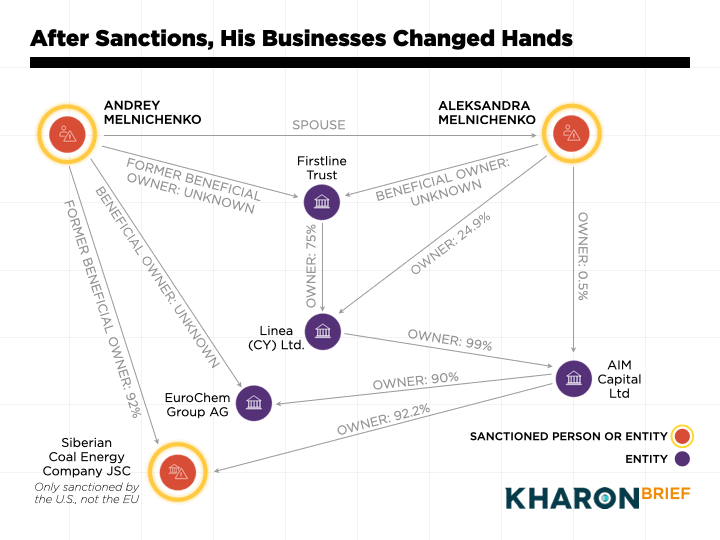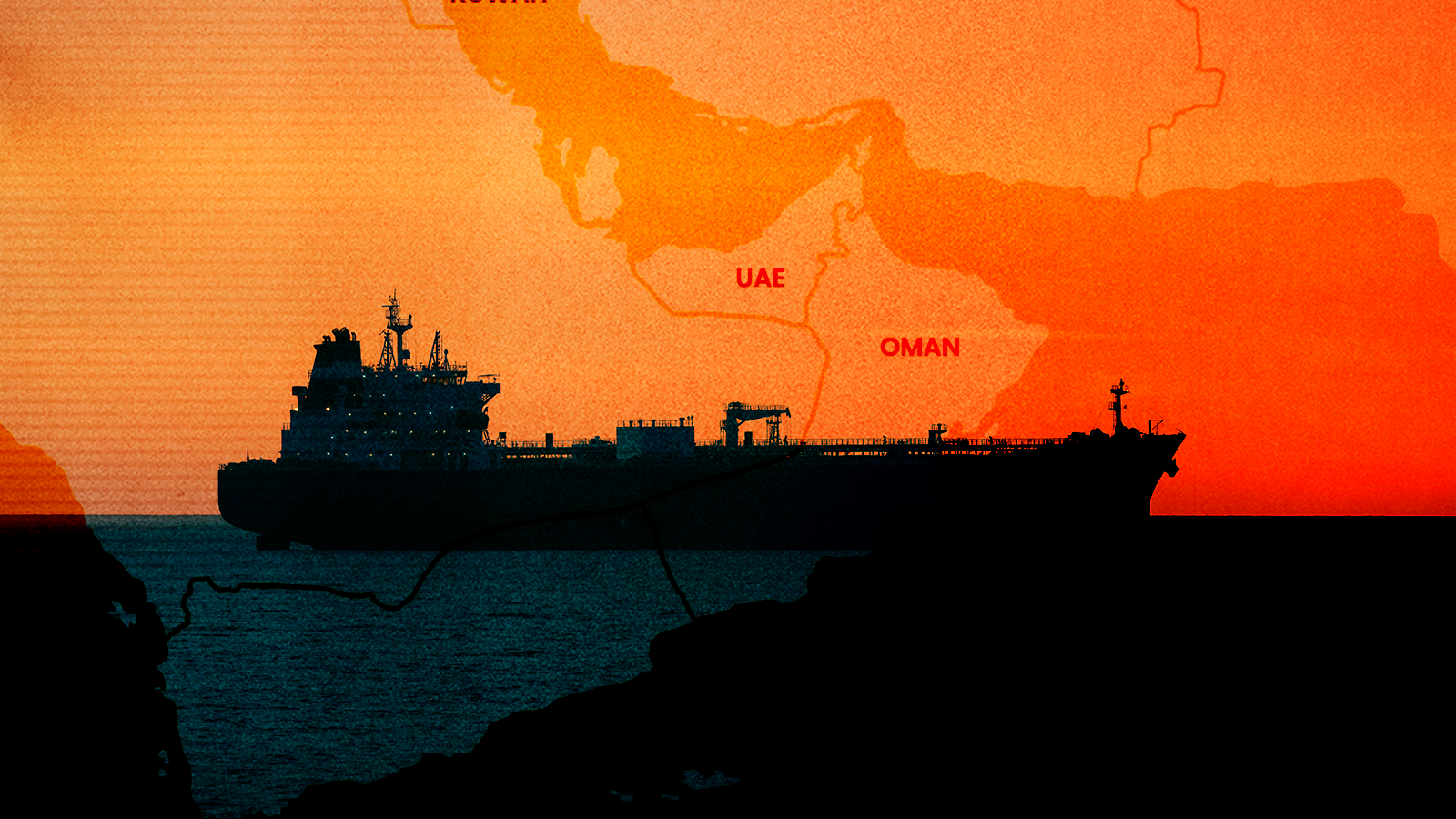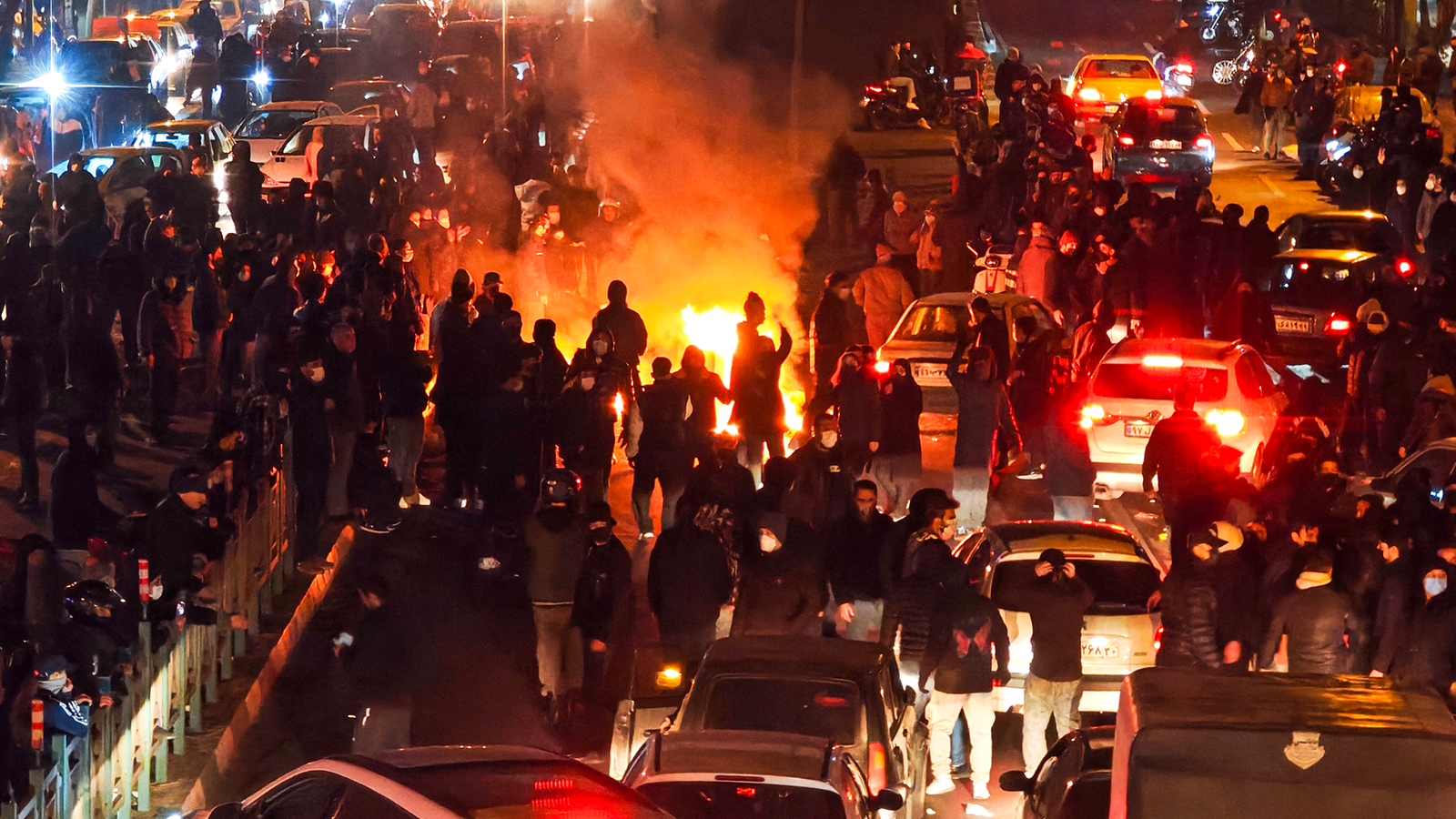A week before the European Union dropped its latest rounds of sanctions against Russia, it expanded its enforcement reach with a subtler move—but a significant one.
Since Russia’s full-scale 2022 invasion of Ukraine, the EU has put pressure on Moscow’s economic and political elite by freezing the assets of “leading businesspersons” in Russia and those involved in Russia’s largest revenue-driving sectors. But the EU’s May 13 update to its designation criteria empowers it now to sanction not only those individuals but also any enablers who help them maintain de facto control over their assets after their designations. Non-EU countries across Europe, including Ukraine, followed suit.
That closes a key loophole. And, coupled with the new sanctions package itself, it underscores the growing target on Russia’s wider evasion networks.
The details: According to the Council of the European Union, leading businesspersons in Russia systematically transfer their shares or step down from official roles to hide their assets or circumvent EU sanctions, while retaining effective control. The EU’s update specifically authorizes it to sanction individuals and entities that facilitate the transfer of ownership, control or economic benefits of business interests that those sanctioned businesspersons hold.
To reinforce this approach, the EU clarified that such changes in ownership or corporate roles will no longer be presumed to alter a person’s influence or economic power. The bloc will presume instead that any asset transfers that occurred after the 2022 invasion are designed to obfuscate true ownership and frustrate sanctions enforcement.
According to the EU, Andrey’s wife, Aleksandra Melnichenko, replaced her husband as the beneficial owner of Firstline Trust, which indirectly owns a majority stake in the two companies. The EU soon sanctioned Aleksandra Melnichenko, in June 2022, writing that she “takes advantage of the fortune and benefits from the wealth of her husband.”
Since Russia’s full-scale 2022 invasion of Ukraine, the EU has put pressure on Moscow’s economic and political elite by freezing the assets of “leading businesspersons” in Russia and those involved in Russia’s largest revenue-driving sectors. But the EU’s May 13 update to its designation criteria empowers it now to sanction not only those individuals but also any enablers who help them maintain de facto control over their assets after their designations. Non-EU countries across Europe, including Ukraine, followed suit.
That closes a key loophole. And, coupled with the new sanctions package itself, it underscores the growing target on Russia’s wider evasion networks.
The details: According to the Council of the European Union, leading businesspersons in Russia systematically transfer their shares or step down from official roles to hide their assets or circumvent EU sanctions, while retaining effective control. The EU’s update specifically authorizes it to sanction individuals and entities that facilitate the transfer of ownership, control or economic benefits of business interests that those sanctioned businesspersons hold.
To reinforce this approach, the EU clarified that such changes in ownership or corporate roles will no longer be presumed to alter a person’s influence or economic power. The bloc will presume instead that any asset transfers that occurred after the 2022 invasion are designed to obfuscate true ownership and frustrate sanctions enforcement.
- That means the EU won’t consider de-listing sanctioned leading businesspersons unless they can provide “sufficient, recent, and reliable” evidence demonstrating a meaningful change in their circumstances. Examples include a loss of influence, a reduction in capital holdings or a public condemnation of Russia’s war against Ukraine.
According to the EU, Andrey’s wife, Aleksandra Melnichenko, replaced her husband as the beneficial owner of Firstline Trust, which indirectly owns a majority stake in the two companies. The EU soon sanctioned Aleksandra Melnichenko, in June 2022, writing that she “takes advantage of the fortune and benefits from the wealth of her husband.”

As of March 2025, the EU considered that Andrey Melnichenko continued to control EuroChem Group and Siberian Coal Energy Company JSC. Per the new designation criteria, any other person or entity who may have been involved in the transfer of ownership of those assets from Andrey Melnichenko to his wife could be subject to EU designation, too.
The U.K.’s guidance: The U.K. hasn’t aligned with the EU’s sanctions update, but it shares the same growing focus on evasion facilitators. In February, the U.K.’s Office of Financial Sanctions Implementation (OFSI) published a Financial Services Threat Assessment that defined two categories of “enablers” who help designated Russian individuals retain their access to assets and luxurious lifestyles:
That strategy was visible in the EU’s sanctions package last week, which designated and put trade restrictions on entities across a range of third countries that had supplied sensitive items to Russia’s military-industrial complex.
Now, as the European Commission signals readiness to adopt further measures should Russia continue its war, sanctioned businesspersons’ facilitators may find themselves under increased scrutiny—and facing the risk of sanctions themselves.
Read more on Russia:
The U.K.’s guidance: The U.K. hasn’t aligned with the EU’s sanctions update, but it shares the same growing focus on evasion facilitators. In February, the U.K.’s Office of Financial Sanctions Implementation (OFSI) published a Financial Services Threat Assessment that defined two categories of “enablers” who help designated Russian individuals retain their access to assets and luxurious lifestyles:
- Professional enablers provide deliberate professional services, such as wealth management, and enable criminality “through a failure to meet their professional and regulatory obligations.”
- Non-professional enablers, such as a family member or business associate, have close personal ties to designated Russian persons and aid evasion through more informal means.
- A new individual or entity making payments to meet an obligation previously met by a Russian designated person.
- Individuals associated with Russian designated persons, including family members and professional enablers, receiving funds of significant value without adequate explanation.
- A family member of a designated person serving as an additional cardholder on a purchasing card and regularly using the card for personal expenses and overseas travel.
That strategy was visible in the EU’s sanctions package last week, which designated and put trade restrictions on entities across a range of third countries that had supplied sensitive items to Russia’s military-industrial complex.
Now, as the European Commission signals readiness to adopt further measures should Russia continue its war, sanctioned businesspersons’ facilitators may find themselves under increased scrutiny—and facing the risk of sanctions themselves.
Read more on Russia:







